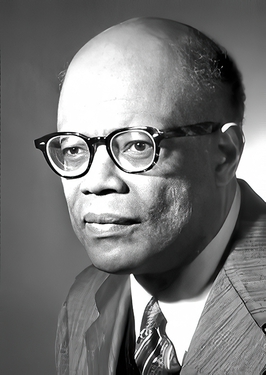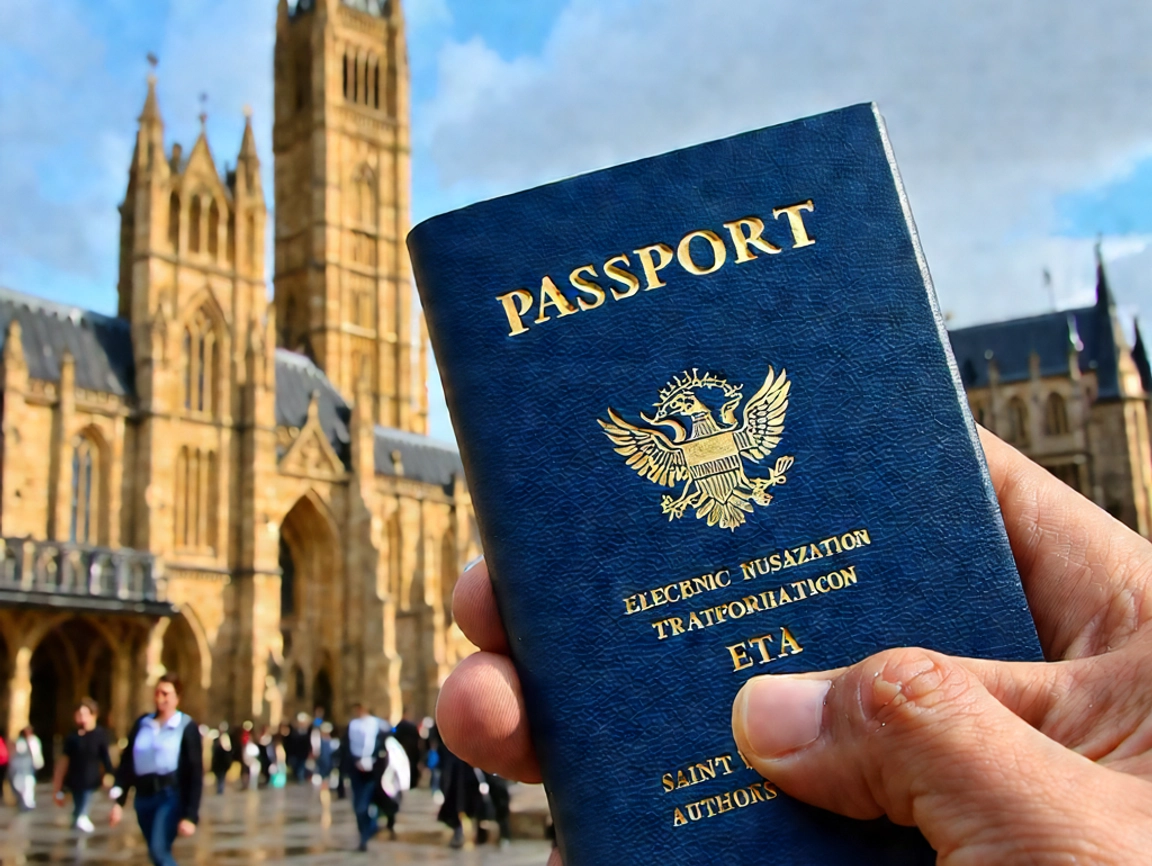A Saint Lucian Economist and Nobel Laureate
Birth: 23 January 1915, Castries, Saint Lucia
Death: 15 June 1991, Bridgetown, Barbados
Notable Contributions: Development economics, Dual-sector model, Lewis turning point

The Life and Legacy of Sir Arthur Lewis: A Saint Lucian Economic Icon
Sir William Arthur Lewis was notably the first of Saint Lucia’s Nobel Laureates having been awarded the Nobel Memorial Prize in Economic Sciences in 1979. Lewis is also noteworthy as the being the first black person to win in a category other than Peace.
The son of two teachers, Sir William Arthur Lewis life and work had a profound impact on the field of economics, particularly in the context of development economics and the economic growth of developing countries. This article delves into the life and legacy of Sir Arthur Lewis, highlighting his achievements, contributions, and enduring impact on the world of economics.
Biography
Raised by his mother after his father’s passing, Lewis excelled academically, earning a scholarship to study in Great Britain in 1932. He attended the London School of Economics (LSE), where he completed his Bachelor of Commerce degree with First Class Honours in 1937 and later obtained a Ph.D. in industrial economics in 1940. Lewis became the first black faculty member at LSE and a full professor at the University of Manchester in 1948.
Lewis’s career spanned both academia and administration. He served in various administrative roles, including as the Vice-Chancellor of the University of the West Indies and President of the Caribbean Development Bank. His scholarly work focused on development economics, emphasizing the importance of education and human capital in driving economic growth in developing countries. Lewis’s notable publications, such as “Economic Development with Unlimited Supplies of Labor” and “The Theory of Economic Growth“, revolutionised the field of development economics.
In 1979, Arthur Lewis was awarded the Nobel Prize in Economics, sharing it with Theodore Schultz, for their groundbreaking research on economic development in developing countries. Lewis’s legacy extends beyond his academic achievements; he was a mentor to younger scholars, a supporter of African-centred materials in university curricula, and a key figure in the establishment of the Caribbean Development Bank.
Sir Arthur Lewis passed away in 1991 in Barbados, leaving behind a lasting impact on the field of economics and the development of developing nations.
Early Life and Education
Born to George Ferdinand and Ida Lewis, Sir Arthur was the fourth of five sons. His parents, both school teachers, had migrated from Antigua to Saint Lucia shortly after the turn of the century. Tragedy struck when Sir Arthur was just seven years old, as his father passed away, leaving his mother to raise their five children alone. Despite these challenges, Sir Arthur’s mother instilled in him a strong work ethic and a love for learning, which would serve him well throughout his life.
Sir Arthur’s academic prowess was evident from an early age. He was accelerated through school, completing the curriculum by the age of 14. He then worked as a clerk in the civil service, where he developed valuable skills in writing, typing, and filing. In 1932, he sat the examination for a St. Lucia government scholarship to a British university and won it, paving the way for his future academic pursuits.
Academic Career
Sir Arthur’s academic journey took him to the London School of Economics, where he earned his Bachelor of Commerce degree in 1937 and a Ph.D. in industrial economics in 1940. He then became a lecturer at the London School of Economics, a position he held until 1948. During this period, he began his systematic research in development economics, laying the foundation for his future work.
In 1948, Sir Arthur was appointed as the Stanley Jevons Professor of Political Economy at the University of Manchester, becoming the first black person to hold this position. This marked the beginning of his illustrious academic career, which would span over three decades.
Contributions to Development Economics
Sir Arthur’s work in development economics focused on the economic growth of developing countries, particularly in Africa, Asia, and the Caribbean. His most famous work, “Economic Development with Unlimited Supplies of Labor“, published in 1954, challenged traditional economic theories and proposed alternative approaches to economic development.
His work also emphasised the importance of education and human capital in driving economic growth. He argued that investing in education and training could help developing countries overcome their economic challenges and achieve sustainable growth.
Administrative Career
Sir Arthur’s administrative career was marked by several significant positions. He served as the United Nations Economic Adviser to the Prime Minister of Ghana, Deputy Managing Director of the United Nations Special Fund, and Vice-Chancellor of the University of the West Indies. He also played a key role in setting up the Caribbean Development Bank, serving as its President from 1970 to 1974.
Awards and Recognition
Sir Arthur’s contributions to economics were recognised with numerous awards and honours. In 1979, he was awarded the Nobel Memorial Prize in Economic Science for his work on development economics. He was also knighted by Queen Elizabeth II in 1963 for his contributions to economics.
Legacy
Sir Arthur’s legacy extends far beyond his academic and administrative achievements. He is remembered for his tireless advocacy for economic development and his commitment to empowering developing countries. His work continues to influence economic policy and development strategies around the world.
In recognition of his contributions, several institutions and landmarks have been named after him. The Sir Arthur Lewis Community College in Saint Lucia, the Arthur Lewis Building at the University of Manchester, and the Arthur Lewis Lectures are just a few examples of the many tributes to his life and work.
Notable Influence
Sir Arthur Lewis’ principles were followed by Puerto Rico, which implemented his “industrialisation by invitation” approach through “Operation Bootstrap.” This strategy involved attracting foreign investment and technology to stimulate economic growth and development. Puerto Rico’s success with this approach has been widely studied and admired, and it has been credited with transforming the island’s economy from a primarily agricultural base to a more diversified and industrialised economy.
[https://www.caribbean-beat.com/issue-19/lewis-model]
Sir Arthur Lewis’ principles were influential in the economic development of several Asian countries, particularly those in East Asia. These countries, such as South Korea, Taiwan, and Singapore, were able to achieve rapid economic growth and industrialisation by adopting policies that emphasised education, human capital, and technological innovation, as outlined in Lewis’ work on development economics.
[https://mpra.ub.uni-muenchen.de/57126/1/MPRA_paper_57126.pdf][https://www.nypl.org/blog/2021/06/09/w-arthur-lewis-west-indian-economist-nobel-laureate
Sir Arthur Lewis’s life and legacy serve as a testament to the power of determination, hard work, and intellectual curiosity. His contributions to development economics have had a lasting impact on the world, and his legacy continues to inspire new generations of economists and policymakers. As we reflect on his life and achievements, we are reminded of the importance of investing in education, human capital, and economic development to create a more equitable and prosperous world.
Other Citations:
- https://media.unesco.org/sites/default/files/webform/mow001/saint_lucia_sir_william_arthur_lewis_papers.pdf
- https://www.unesco.org/en/memory-world/lac/sir-william-arthur-lewis-papers
- https://www.rrojasdatabank.info/pioneers5.pdf
- https://www.nobelprize.org/prizes/economic-sciences/1979/lewis/biographical/
- https://en.wikipedia.org/wiki/W._Arthur_Lewis
Header Images:
- https://en.wikipedia.org/wiki/W.Arthur_Lewis#/media/File:Arthur_Lewis(Nobel_photo).jpg
- https://static01.nyt.com/images/2017/08/06/books/review/06Hutchinson/06Hutchinson-superJumbo.jpg?quality=90&auto=webpps://www.quintessentiallytravel.com/en-cx/blog/st-lucia-through-the-eyes-of-the-late-nobel-laurea
- https://blogsmedia.lse.ac.uk/blogs.dir/65/files/2023/05/Arthur-Lewis-video_featured.jpg
- https://www.princeton.edu/sites/default/files/styles/scale_1440/public/images/2018/05/20180430_LewisPortrait_EJ_DSC_0475_d.jpg?itok=sPup-UEj







